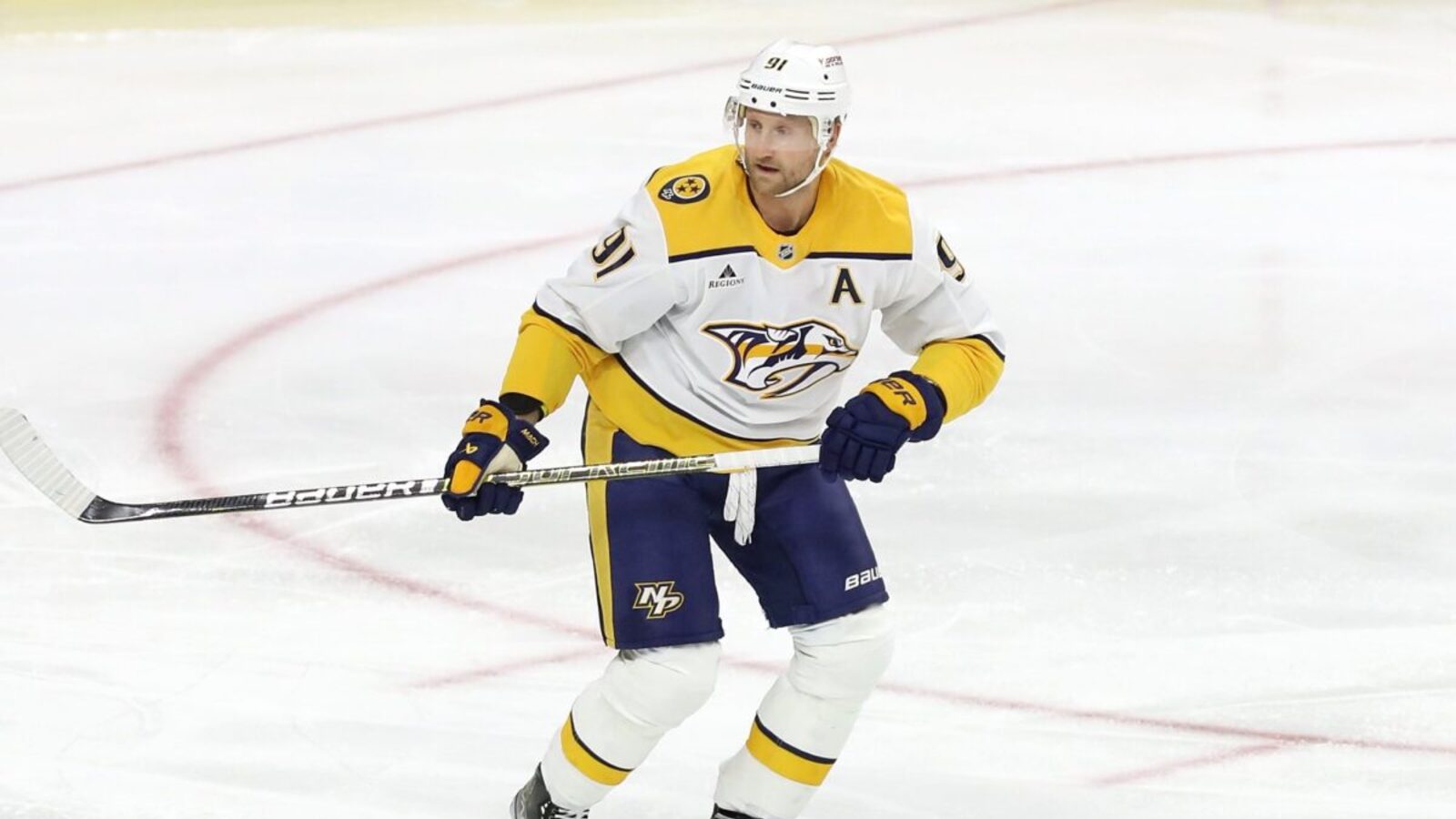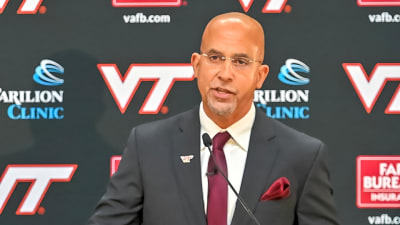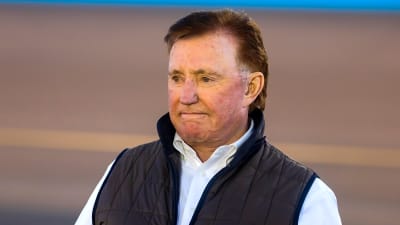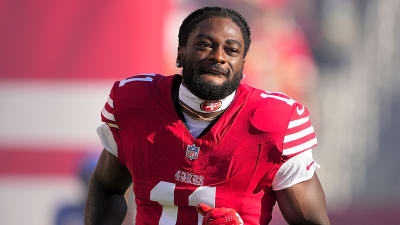
The Nashville Predators (6-11-4) have the worst record in the NHL, and the biggest reason has been a lack of scoring touch. They’ve potted just 49 goals this season, which is dead last in the league by ten (Calgary Flames have 59). In the past two games against the Pittsburgh Penguins in Sweden and vs. the Colorado Avalanche at home, Nashville has been shut out. As a result, the Predators have the worst goal differential in the NHL (minus-24).
For a team that had Stanley Cup ambitions after a massive 2024 offseason, the team hasn’t come close to living up to those expectations. Filip Forsberg leads the team with eight goals, and there are just three Predators with five or more (Forsberg, Ryan O’Reilly, Matthew Wood). No one is at or above a point per game on the team. Once again, Forsberg is leading the way with 15 points in 21 games.
There isn’t one particular guilty party. A high-powered offense relies on goals from the star talent and the depth pieces. The Avalanche, whom Nashville just played, leads all NHL teams in goals (87), and eight of their skaters have five or more.
Tonight's final. pic.twitter.com/vPjjAe2ivA
— Nashville Predators (@PredsNHL) November 23, 2025
While Colorado is able to generate offense from any line or pairing, Nashville can only rely on the first line. Here are the biggest reasons for their scoring drought.
Reason No. 1: The 2024 Free Agency Class
The Predators were considered champions of the offseason in 2024. They signed center Steven Stamkos from the Tampa Bay Lightning, right winger Jonathan Marchessault from the Vegas Golden Knights, and defenseman Brady Skjei from the Carolina Hurricanes. Stamkos had just come off an 81-point season with Tampa, Marchessault just tallied a career high 42 goals in 82 games, and Skjei had a career year as well. Skjei had 47 points through 80 games.
All three of them were supposed to add a jolt to a team that ranked 10th in goals per game in 2023-24 (3.24). Fast forward two years, and all of them have been massive duds.
Skjei scored 10 goals and had 23 assists through 82 games in 2024-25, but this season, he has just six assists through 21 games. Marchessault had a 21-goal, 35-assist season in 2024-25, but he has just four goals and two assists in 18 games this season.

Stamkos, however, has had the biggest falloff. He went from 27 goals and 26 assists in 82 games last season to just four goals and one assist in 21 games in 2025-26. He went on a nine-game pointless streak from Oct. 18 to Nov. 3.
Those are three major acquisitions that have blown up in Nashville’s face. Stamkos was signed to a four-year, $32 million deal, Marchessault is in a five-year, $27.5 million contract, and Skjei is in the middle of a seven-year, $49 million contract. Between all of them, that’s $20.5 million per year, nearly a quarter of the Predators’ 2025-26 cap hit ($89.2 million), and they’ve combined for just four goals and nine assists.
Reason No. 2: Veterans over Youth
Age is a major factor in the team’s underperformance. The average age of the Predators is 27.92, which is middle of the pack, but that comes with a major caveat: most of their major contributors are in their 30s.
Nashville has just four players on their top three lines and top two pairings that are under 30 (Luke Evangelista, Matthew Wood, Nick Perbix, Nicholas Hague). Stamkos and Roman Josi are 35, Marchessault, Ryan O’Reilly, and Erik Haula will each turn 35 this season, and Forsberg and Skjei are 31, with Skjei turning 32 in March. Michael Bunting and Michael McCarron are 30, with McCarron reaching 31 in March.
There are several reasons why a young team is better than an old team. Younger skaters are usually faster than older skaters, and they’re usually more durable, since they’ve taken fewer hits. Of the top 10 point getters in the NHL this season, just one (Nathan MacKinnon) is over 30, and there are three (Macklin Celebrini, Connor Bedard, Leo Carlsson) that aren’t even 21.
Nashville has a few young players to look at for the future, such as Wood and Evangelista. However, the majority of them are non-contributors. Fedor Svechkov and Ozzy Wiesblatt are stuck on the fourth line, while Joakim Kemell and Brady Martin aren’t even on the NHL roster right now. Safe to say, Nashville had a backwards philosophy in team building. The Predators favored veterans over youth, and it has not worked well for them.
How to Fix It
There isn’t an easy way to fix Nashville’s scoring issues in 2025-26. The issues come from an aging core and poor transactions. Andrew Brunette’s system isn’t getting the most out of the roster, and Barry Trotz’s idea of team building has set the team back years.
Nashville is heading towards a deep rebuild. There have been rumors of trading away O’Reilly and Stamkos, and while O’Reilly could fetch a nice package, Stamkos’ no-movement clause makes it difficult to move him. Marchessault is also on a no-movement clause, and Skjei has a 15-team no-trade clause.
Nashville is in a tough spot with so many veteran players on massive contracts, so the transition to a youth movement will be long and arduous. Until then, the Predators will probably be near the bottom in goals per game for the foreseeable future.
More must-reads:
- Maple Leafs' William Nylander leads NHL in elite stat amid team struggles
- Mikko Rantanen suspended one game
- The '2025 NFL draft QB class' quiz
Breaking News
Trending News
Customize Your Newsletter
 +
+
Get the latest news and rumors, customized to your favorite sports and teams. Emailed daily. Always free!








